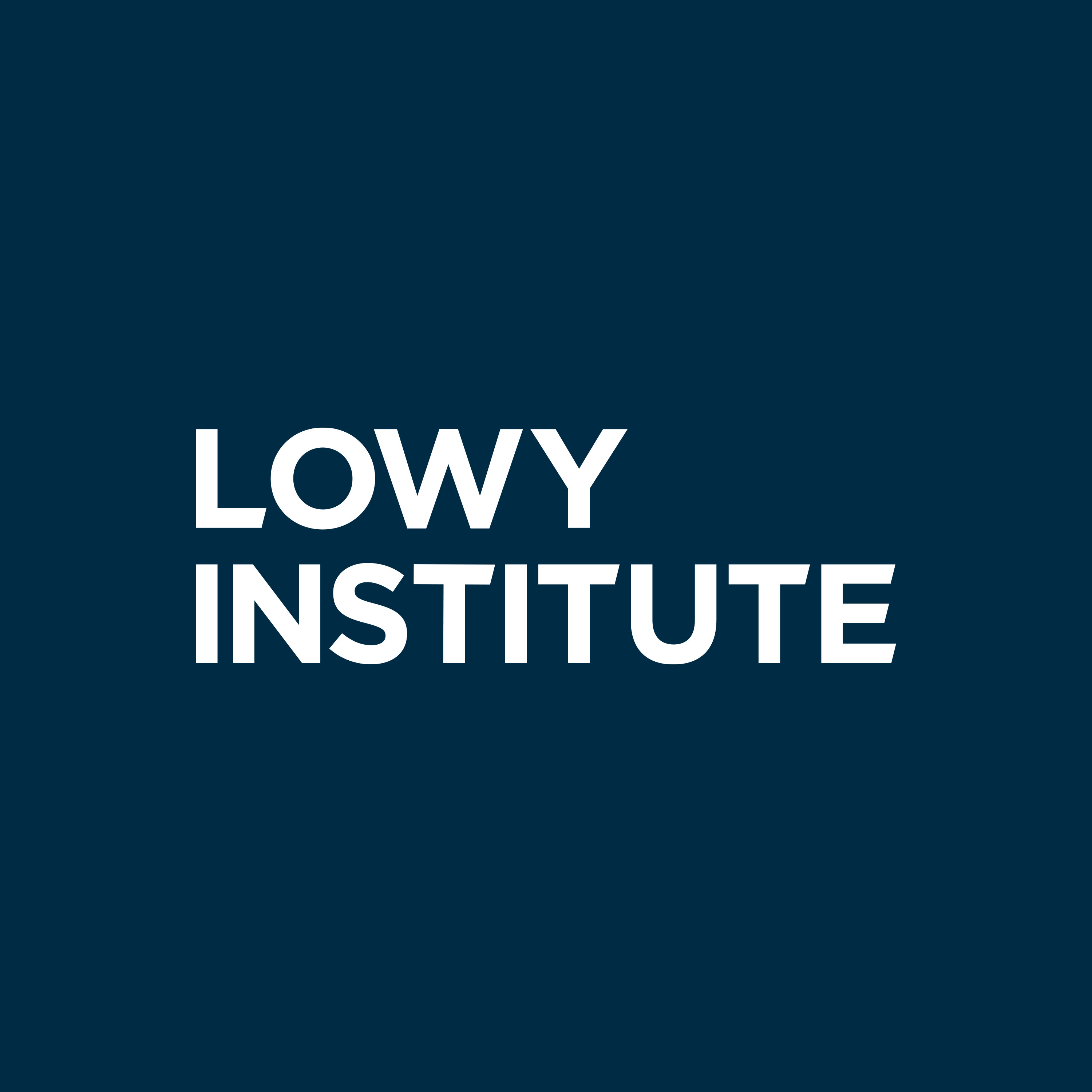

Lowy Institute
Lowy Institute
The Lowy Institute is a leading international think tank that looks at the world from Australia’s perspective.
This channel aggregates audio from across all of our event and podcast channels.
This channel aggregates audio from across all of our event and podcast channels.
Episodes
Mentioned books

Oct 14, 2025 • 28min
Conversations: Whither global leadership on counter-terrorism?
Until his retirement from government this year, Nick Rasmussen has worked in counter-terrorism and countering violent extremism under successive Republican and Democratic administrations in the United States since the September 11 attacks in 2001, including under the first Trump administration. In this conversation, the Lowy Institute’s Lydia Khalil speaks with Nick about the significant changes the Trump administration has made to CT/CVE policy and how allies can adjust. See omnystudio.com/listener for privacy information.

Oct 9, 2025 • 25min
Conversations: Pukpuk, Indonesia, and the Philippines-Taiwan connection
Join Sam Roggeveen and Interpreter Managing Editor Daniel Flitton for a conversation about what we covered this month in Australia’s best foreign affairs magazine, The Interpreter.See omnystudio.com/listener for privacy information.

Oct 7, 2025 • 28min
Event: Lowy Institute Media Award — In conversation with Susan Glasser and Peter Baker
In this engaging conversation, Susan Glasser, a staff writer for The New Yorker with deep insights into US-Russia politics, and Peter Baker, Chief White House Correspondent for The New York Times, tackle pressing issues in journalism today. They discuss Trump’s disruptive presidency and the evolving adversarial role of the media. The duo highlights the chilling effects of legal threats on press freedom, the polarization of public discourse, and the critical importance of reporting from authoritarian regimes. Their insights reveal the challenges and responsibilities of contemporary journalism.

Sep 30, 2025 • 28min
Conversations: First among equals — How the US should adjust to a multipolar world
Emma Ashford, a Senior Fellow at the Stimson Center and adjunct professor at Georgetown, discusses her new book on U.S. foreign policy in a multipolar world. She stresses the importance of U.S. adaptation over maintaining its old unipolar mindset, examining the generational habits that hinder change. Ashford highlights China's hegemonic threat in Asia and the need to balance deterrence with avoiding war. She emphasizes the significance of Taiwan and suggests that the U.S. should re-evaluate its defense strategy, particularly in collaboration with allies like Australia.

Sep 25, 2025 • 27min
Conversations: Understanding influence in Southeast Asia
Susannah Patton, Deputy Director at the Lowy Institute, and Rahman Yaacob, a research fellow specializing in Southeast Asian defense diplomacy, dive into the Southeast Asia Influence Index project. They explore the complex geopolitics of the region, revealing that China holds a slight lead over the US in influence. The duo discusses surprising findings, like India's limited reach, and highlights the importance of middle powers. They emphasize the need for Southeast Asian countries to diversify their partnerships amid growing external pressures.

Sep 23, 2025 • 24min
Conversations: Understanding global democratic decline
We're in a global democratic recession. Not only is the number of democratic nations in decline, but so are democratic institutions and norms. What's going on? Sam Roggeveen talks with Lydia Khalil, co-author of the Lowy Institute's newest interactive, Understanding Democratic Erosion, about the complex dynamics and whether there is a way back.See omnystudio.com/listener for privacy information.

Sep 17, 2025 • 31min
EVENT: Indonesia’s next chapter — Governance, leadership and reform
Under new leadership, Indonesia continues to face a persistent and complex challenge: governance. As the country strives to maintain political stability and meet ambitious economic targets, governance reform has become central to meeting both domestic development goals and international commitments. Will political and economic developments in Indonesia enable it to escape the middle-income trap? How can Indonesia balance its climate change pledges with its industrial agenda, and what role does the carbon market play? Can the pursuit of OECD and CPTPP membership act as leverage to drive necessary governance reforms? This panel discussion features Professor Shiro Armstrong (Australian National University), Dr Ida Aju Pradnja Resosudarmo (Australian National University), Dr Liam Gammon (Australian National University) and Dr Axel Michaelowa (University of Zurich). The discussion was moderated by Lowy Institute Research Fellow Dr Hilman Palaon.See omnystudio.com/listener for privacy information.

Sep 9, 2025 • 20min
Bougainville's future: Sustainable sovereignty through development
Bougainville has set 2027 as the deadline to declare independence from Papua New Guinea. But the economic and institutional foundations of sovereignty in the autonomous region remain fragile. In this episode of Pacific Change Makers, the Lowy Institute’s Director of the Pacific Islands Program Mihai Sora speaks with Oliver Nobetau, Director of the Aus–PNG Network Project, about the roadmap needed to ensure Bougainville’s future prosperity.See omnystudio.com/listener for privacy information.

Sep 5, 2025 • 26min
Conversations: The Beijing parade, controversy in the Pacific, wither the Quad, and nuclear reactors on the Moon — This month in The Interpreter
Join Lydia Khalil and Interpreter Managing Editor Daniel Flitton for a conversation about what we covered this month in Australia’s best foreign affairs magazine, The Interpreter.See omnystudio.com/listener for privacy information.

Sep 2, 2025 • 27min
Conversations: Mick Ryan on Trump's Ukraine folly
The Trump–Putin summit in Alaska left the Russian leader smiling and the United States without concrete results, says Lowy Institute Senior Fellow for Military Studies Mick Ryan. In this conversation, Sam Roggeveen asks Mick Ryan about the battlefield situation in Ukraine and the lessons of the war for the Asia-Pacific.See omnystudio.com/listener for privacy information.


